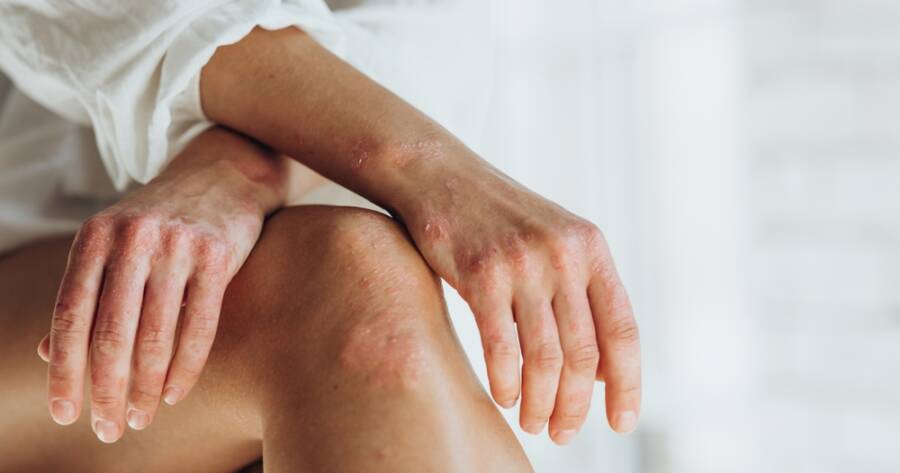Psoriasis is a chronic skin condition that causes red, scaly patches, which can be itchy, uncomfortable, and challenging to manage, especially during flare-ups. For relief, many individuals might explore a combination of home remedies and medical treatments, aiming to alleviate symptoms and promote healthier skin. Treatments vary widely, depending on the severity, type, and persistence of symptoms, and can include moisturizing routines, anti-inflammatory diets, and dermatologist-prescribed therapies to help manage and reduce discomfort associated with this condition.
Home Remedies
Some people with psoriasis might find effective symptom relief with natural remedies, especially for milder cases. While home remedies may not cure psoriasis, they could help manage flare-ups and discomfort.
- Moisturizing and Hydration
Keeping the skin hydrated might reduce dryness and flakiness often associated with psoriasis. Using heavy moisturizers like petroleum jelly or rich creams may provide a protective layer, potentially reducing irritation. Natural oils such as coconut oil or olive oil, applied to affected areas, might also help soothe inflammation. It’s often suggested to apply moisturizers directly after bathing, while the skin is still damp, to retain moisture. - Warm Baths with Epsom Salt or Oatmeal
Taking a warm bath with Epsom salt or colloidal oatmeal could help soften scales and reduce itchiness. Epsom salt may also calm inflammation, while oatmeal can provide relief to irritated skin. Afterward, it might be beneficial to moisturize immediately to lock in hydration and prevent skin from drying out. - Aloe Vera
For some, aloe vera gel could be a soothing natural treatment for psoriasis patches. It may help reduce redness and scaling, and since it’s gentle, it can be applied several times daily if needed. Natural aloe gel, free from added chemicals, is generally recommended. - Dietary Adjustments and Anti-inflammatory Foods
Though research is still emerging, some individuals with psoriasis might notice a reduction in flare-ups by following an anti-inflammatory diet. Foods rich in omega-3 fatty acids, such as fish, nuts, and seeds, may reduce inflammation. Additionally, fruits and vegetables packed with antioxidants could potentially benefit skin health. Avoiding processed foods and alcohol may also help, as these are sometimes linked to inflammation.
Medical Remedies
Medical treatments are often necessary for managing moderate to severe psoriasis. Dermatologists may prescribe these remedies to reduce inflammation, slow skin cell production, and control symptoms.
- Topical Corticosteroids
For those experiencing flare-ups, topical corticosteroids might be a primary treatment to reduce inflammation and itching. Available in varying strengths, they can be applied directly to affected areas. It’s important to use these treatments as directed by a healthcare provider, as long-term use may cause skin thinning. - Vitamin D Analogues
Synthetic forms of vitamin D, such as calcipotriene, are sometimes prescribed to slow down skin cell growth in affected areas. These treatments may be used in conjunction with corticosteroids and are typically applied topically. Although effective for many, they may cause irritation, so application instructions from a doctor should be followed closely. - Phototherapy
Light therapy, or phototherapy, might be recommended for those with widespread psoriasis or when topical treatments aren’t sufficient. Controlled exposure to UVB light could help reduce symptoms by slowing skin cell turnover. However, phototherapy sessions are usually conducted under medical supervision, as excessive exposure could worsen symptoms or increase skin cancer risk. - Oral or Injectable Medications
For severe psoriasis cases, oral or injectable medications, such as methotrexate or biologics, may be recommended. These treatments work by targeting the immune system to reduce inflammation and slow down cell production. Because these medications can have side effects, they’re often prescribed when other treatments aren’t effective.
Achieving Effective Psoriasis Relief
People managing psoriasis may find that combining home remedies and medical treatments provides the best relief, depending on symptom severity and individual needs. Consulting a healthcare professional can help guide treatment decisions, leading to better long-term management and improved skin health.

